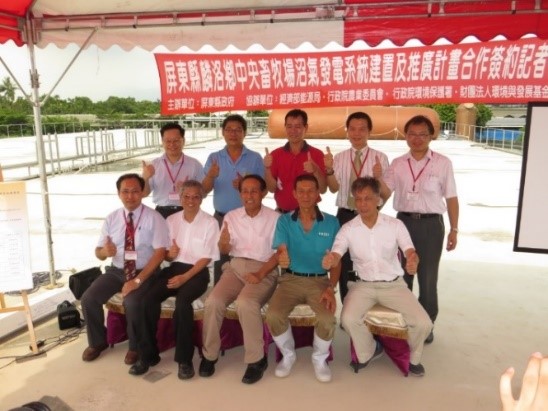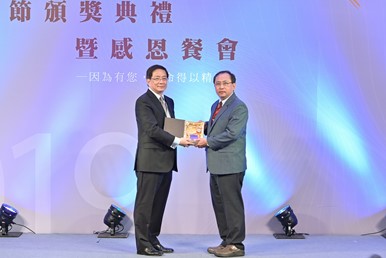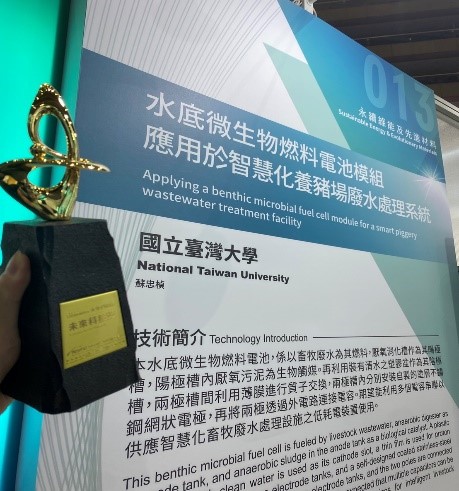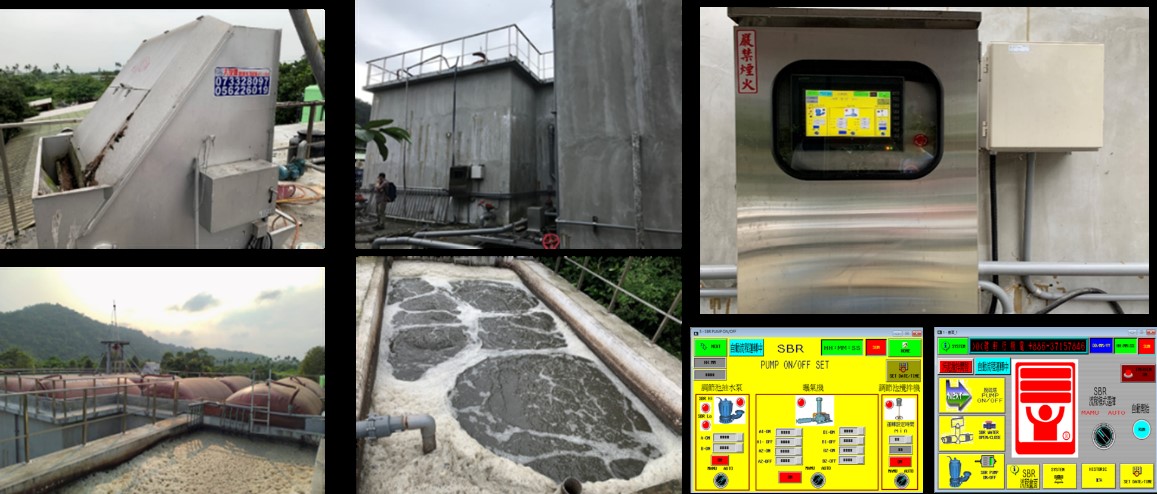Livestock carbon sequestration technology involves using physiological processes such as digestion and absorption of grains and fodder consumed by livestock animals, which fix atmospheric carbon dioxide and convert them into animal protein (food sources). Animal wastewater can produce renewable resources such as biogas or micro-electricity by anaerobic digesters (AD) or coordinated with microbial fuel cells.
Between 2006 and 2009, Professor Jung-Jeng Su from the Department of Animal Science and Technology developed a farm-scale biogas biological desulfurization system, which has been directly implemented in commercial pig farms. This system was awarded the 7th National Innovation Award in 2010. In 2013, Professor Su assisted the Pingtung County Zhong-Young Livestock Farm in becoming Taiwan’s first livestock biogas desulfurization and electricity generation demonstration site. This successful case study has helped government agencies formulate green energy policies for the livestock industry and encouraged livestock farms to actively develop biogas power generators. In 2019, Professor Su was awarded the NTU’s Outstanding Teacher Social Service Award.
Between 2002 and 2023, research on a typical double-chamber microbial fuel cell reactor was conducted and the data was analyzed by the Fast Fourier Transform (FFT) calculation. Notably, the achievement of this research is the world’s first proven microbial fuel cell producing both alternating current (AC) and direct current (DC) simultaneously and has been cited in international journals with high impact factors. In 2022, Professor Su was awarded the Future Tech Award by the National Science and Technology Council (NSTC) and soon will carry out field validation of farm-scale microbial fuel cells to partially replace traditional power structures. From 2018 to 2020, an automatic livestock wastewater treatment system combined with Internet of Things (IoT) technology was constructed on a commercial pig farm in Yilan County, with the goals of improving treatment efficiency and reducing carbon emissions.
According to stationary combustion emission factor estimates by the Intergovernmental Panel on Climate Change (IPCC), 99% of carbon emissions can be reduced if livestock biogas replaces fossil fuels. Cross-industry carbon offset strategies can help decrease the carbon footprint of industrial products exported overseas.


Press conference of Zhong-Young Livestock Farm Livestock Biogas Power Generation Demonstration site (Left) and Professor Jung-Jeng Su receiving the NTU’s Outstanding Teacher Social Service Award from President Chung-Ming Kuan.


The swine wastewater microbial fuel cell was awarded the Future Tech Award by the National Science and Technology Council in 2022.

First demonstration site of the automatic livestock wastewater treatment system in coordination with the Internet of Things (IoT) technology in Yilan County, Taiwan.